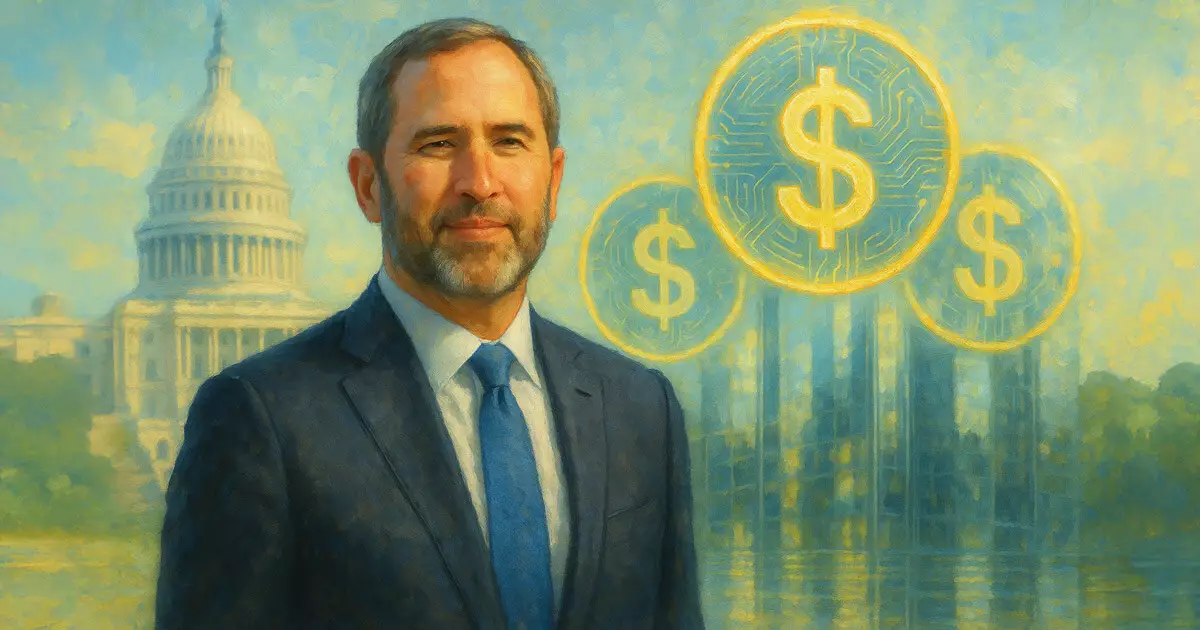In a landscape dominated by rapid technological evolution, the hesitance displayed by U.S. lawmakers regarding stablecoins might be a significant misstep. Ripple CEO Brad Garlinghouse recently highlighted the importance of establishing a robust regulatory framework, cautioning that failure to act could jeopardize America’s financial dominance. The lack of decisive legislative action, particularly following the Senate’s 49-48 vote against advancing the GENIUS Act, demonstrates a troubling trend: a delay in embracing financial innovation while other countries sprint ahead. The absence of clear regulations not only stifles growth but risks relegating the U.S. to a follower’s role in the burgeoning digital finance revolution.
Global Competitors Are Gaining Ground
Garlinghouse’s remarks point to an alarming reality—stablecoins are no longer a niche market. Their seamless integration into global financial systems is making it evident that nations willing to facilitate their growth will likely reap substantial economic rewards. The stark contrast between the U.S. and countries actively embracing stablecoin technology reveals a significant opportunity cost in delaying comprehensive regulatory frameworks. International players are capitalizing on America’s indecision, effectively positioning themselves as leaders in digital currency adoption. Without a proactive approach, the U.S. risks losing its foothold in an arena that is not just beneficial but essential for future economic competitiveness.
Stablecoins: A Counter to Volatility
One of the most compelling advantages of stablecoins lies in their pegging to fiat currencies like the U.S. dollar, providing a buffer against the relentless volatility associated with assets like Bitcoin. As these digital currencies see record transaction volumes—$1.82 trillion in March 2025 alone—the vital role they play within the ecosystem becomes undeniably clear. They serve as practical tools for facilitating not just payments, but also cross-border transactions, which makes them a linchpin for modern commerce. Traditional financial institutions are beginning to catch on, with major players like Stripe and Meta signaling their interest in the sector. Ignoring this trend could mean missing out on a monumental shift in how businesses operate.
Political and Economic Implications
The implications of stalling stablecoin regulations extend far beyond the crypto space. Treasury Secretary Scott Bessent rightly framed the GENIUS Act as a pivotal moment for the U.S. to expand its influence while reinforcing the dollar’s global dominance—a prospect that now seems distant following recent legislative failures. As the world rapidly shifts towards digital assets, the U.S. must assert itself, or risk being overshadowed by nations that are willing to adapt. The financial ecosystem requires clear rules to foster innovation and trust; without them, we are left with a chaotic patchwork of state regulations that can only stifle growth.
In the fast-paced arena of digital finance, decisive action is critical. The stakes are high, and the call for clarity on stablecoins is not merely a corporate request; it’s a national imperative. It is time for U.S. lawmakers to wake up to the reality that a comprehensive approach is needed now more than ever to ensure America’s leadership in the future of finance.

